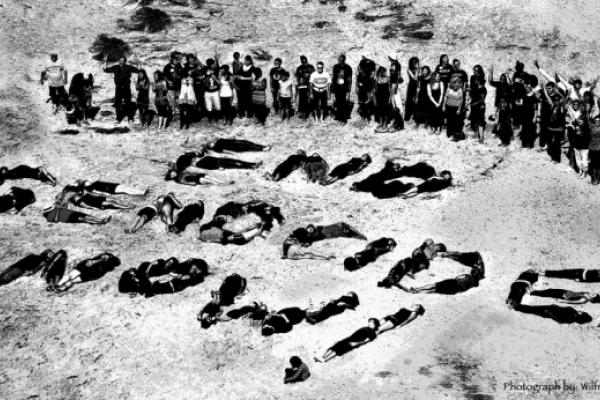
"It is the law of love that rules mankind. If violence, ie hate, had ruled, it would have long since disappeared. "(Mohandas Gandhi, April 13, 1940).
Based on this quote, it is necessary to consider the following points:
Isn’t it time to end the Turkish-Armenian conflict?
How many more years will it take to find a solution to this question already lived for almost a century and several generations?
Should we wait another second century to solve this historical conflict?
It is imperative to step up efforts to stop the consequences of a genocide committed from almost 100 years!
Not bringing a settlement to the 'Armenian issue', especially after all this development that humanity has lived on all levels of social life, particularly in terms of respect for human rights, undoubtedly reflects an unworthy character.
The Armenian Genocide reveals the impotence of law, ie the law of allegiance to the force, politics, and geostrategic issues?
Is that proof that the law, especially international law, is structurally weak and ineffective?
The Armenian Genocide, the first modern genocide has never been sanctioned and is still not recognized by Turkey. What did the law do?
The judgment of history is severe. There, Laws has done nothing in 1915 to prevent, deter or then punish crimes committed against Ottoman Armenians. Should we therefore conclude that the law is unable to effectively intervene when genocide is committed? The genocide during the Second World War against the Jews, the most recent genocides in Bosnia and Rwanda, a strong incentive for a positive response. Genocide is a crime that we cannot punish as Hannah Arendt said. A crime that we cannot prevent also.
The idea of an international criminal justice would it be a fantasy, a desire for legitimate and innocent time, clean with a contemporary international scene in search of a new global order that has yet to be felt?
Undoubtedly, political considerations have dominated the requirements of law. However, the simplicity should be exiled. Politics in general and especially diplomacy are based on cold calculations of interest. Consideration of moral values is not the main guide of political action. States act only according to their selfish interests. The legal system is facing enormous difficulties to punish crimes against humanity. The lack of punishment of the Armenian Genocide is due to historical way, partly because the concept of crimes against humanity still stammered at the time. The ineffectiveness of international standards on genocide would undoubtedly due to the unwillingness of states that seek to preserve their sovereignty and defend their national interests.
The law would then be an effective response to human conflict in normal time, but it would be powerless to generalized barbarism, when the inhumanity barrier is crossed. International criminal law would be doomed to inefficiency matter.
This pessimistic view of the law, if it is a part of reality, however, must leave room for a sense of hopeful progress and right, and it is still necessary to continue to believe in international justice, to the principle of equality, freedom and human rights, designed by the international community.
Rodney Dakessian
Beirut on 8-August-2013

